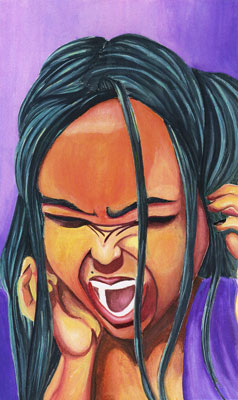All Nonfiction
- Bullying
- Books
- Academic
- Author Interviews
- Celebrity interviews
- College Articles
- College Essays
- Educator of the Year
- Heroes
- Interviews
- Memoir
- Personal Experience
- Sports
- Travel & Culture
All Opinions
- Bullying
- Current Events / Politics
- Discrimination
- Drugs / Alcohol / Smoking
- Entertainment / Celebrities
- Environment
- Love / Relationships
- Movies / Music / TV
- Pop Culture / Trends
- School / College
- Social Issues / Civics
- Spirituality / Religion
- Sports / Hobbies
All Hot Topics
- Bullying
- Community Service
- Environment
- Health
- Letters to the Editor
- Pride & Prejudice
- What Matters
- Back
Summer Guide
- Program Links
- Program Reviews
- Back
College Guide
- College Links
- College Reviews
- College Essays
- College Articles
- Back
milk and honey by Rupi Kaur
Poetry has always captivated me with its profundity and equivocality, but seldom have I completely understood a piece. Most of the time I blame myself for attaching too many subjective ideas onto the poet’s original work, but sometimes a poet comes along and encourages me—with his/her relatable way of approaching a theme—to feel comfortable being emotionally invested in the poetry I’m reading. Rupi Kaur, one of these poets, has also inspired me to form a completely new outlook on poetry and the impact it can have on readers.
Kaur is a survivor that’s found release in sharing her experience and that of others through easy-to-follow free verse. As a tribute to her Indian heritage, she writes with only lowercase letters and the period (as in the Gurmukhi script). Like many contemporaries, she advocates female empowerment, which she underscores in her poems as well as in her renowned social media photo-essay on menstruation. Given these circumstances, I imagine I would have found her too typical, as a poet, a feminist, and a person. It may be possible, even now that I enjoy her work, that she is a mere representative of countless young people around the world—self-empowering, courageous, emotional, and vulnerable. This is the reason for which I assume she has been recognized as a bestselling author and illustrator—her energy and complicated persona appeals to readers through her simple words.
What I like about milk and honey is how it tells a story of survival through snippets of Kaur’s mindset as she moves from part to part—hurting, loving, breaking, and healing. In one sitting, I’m able to experience what she’s lived and decry a resemblance between our very different stories. These similarities mostly revolve around femininity, which she is unafraid to bluntly expose even at the expense of subtly criticizing her heritage (with strict cultural taboos against female empowerment). What brings this book together, however, is how she doesn’t sound like any particular woman. She doesn’t seem colored or white, privileged or underprivileged, optimistic or pessimistic. She just sounds like a person embracing her gentle femininity while empowering herself.
On the downside, what makes Kaur’s poetry seem approachable and relatable also makes her words seem less distinctive than they should feel. Most of these poems don’t seem like they require much contemplation to churn out. But of course, what she’s experienced up to their production have not (cannot?) be adequately addressed with words. Even the ordering of the poems is a bit baffling as multiple pieces, strangely placed, significantly broke the emotional flow of the whole book. Most importantly, I became confused with the term “free verse” while reading this. It doesn’t read like poetry usually does—at least not the kind I enjoy. But it also doesn’t feel like meaningful concrete poetry. The line breaks don’t seem to serve a thematic purpose, and at some points, they seem to be random. I wouldn’t go as far as saying her poems sound like Tumblr quotes, but Kaur definitely isn’t a conventional writer of good old rhyming, regular-metered poetry.
In general, Kaur’s poetry seems a bit rough around the edges, but just right in some places. I genuinely see the potential impact she can create and I look forward to her new work.

Similar Articles
JOIN THE DISCUSSION
This article has 0 comments.
